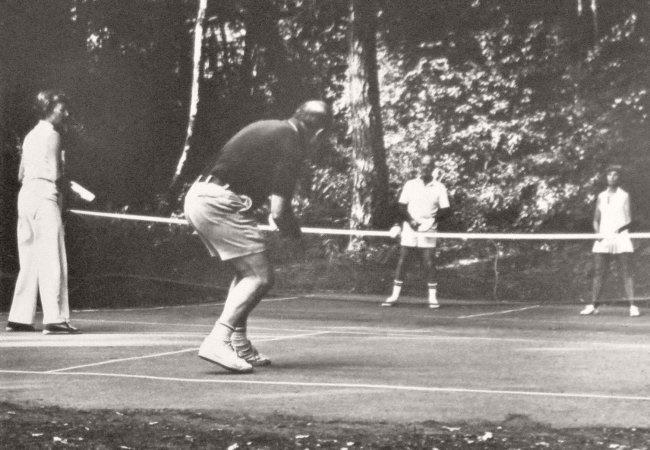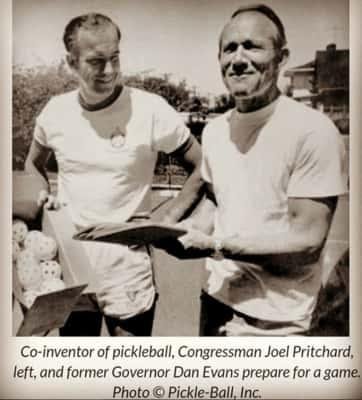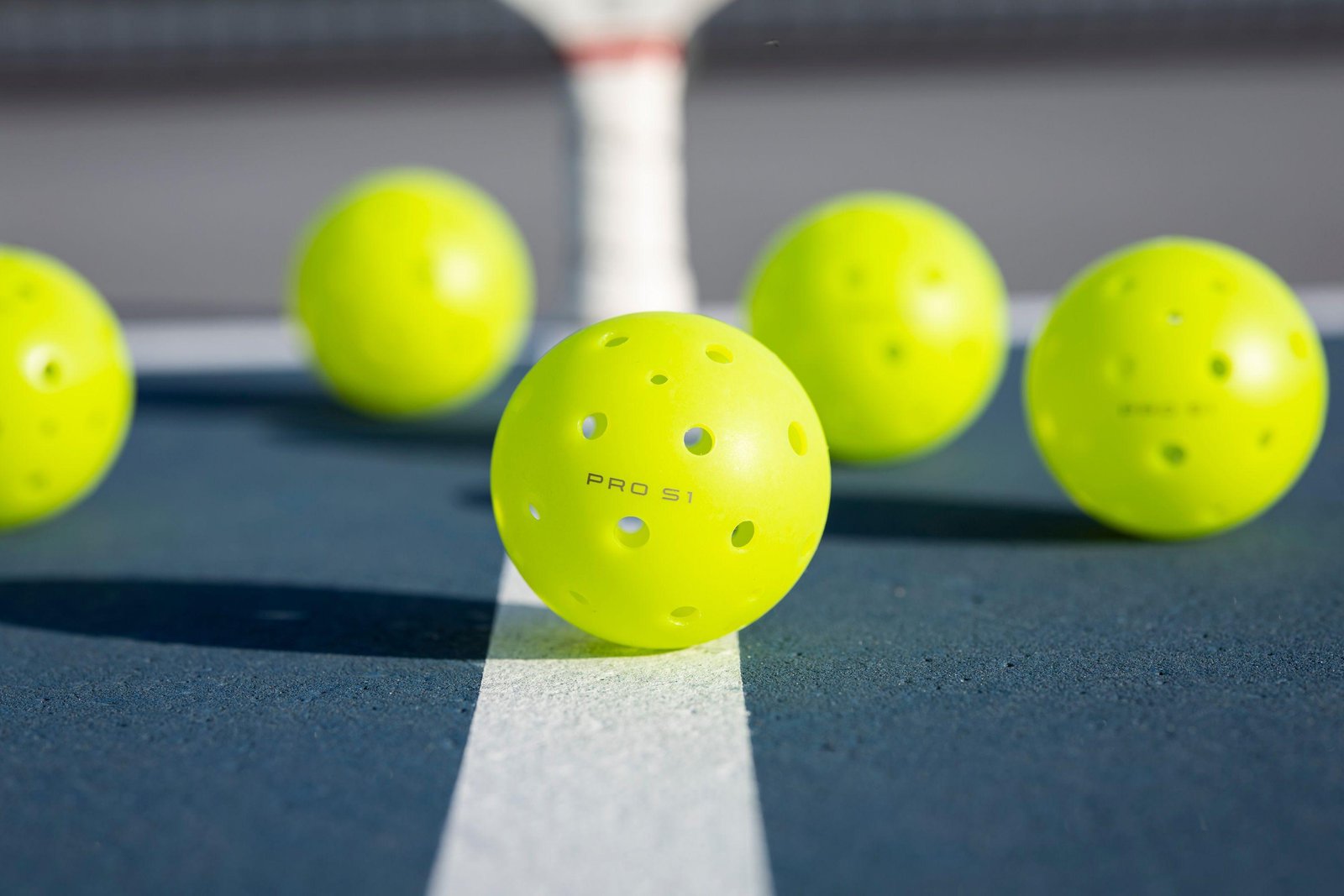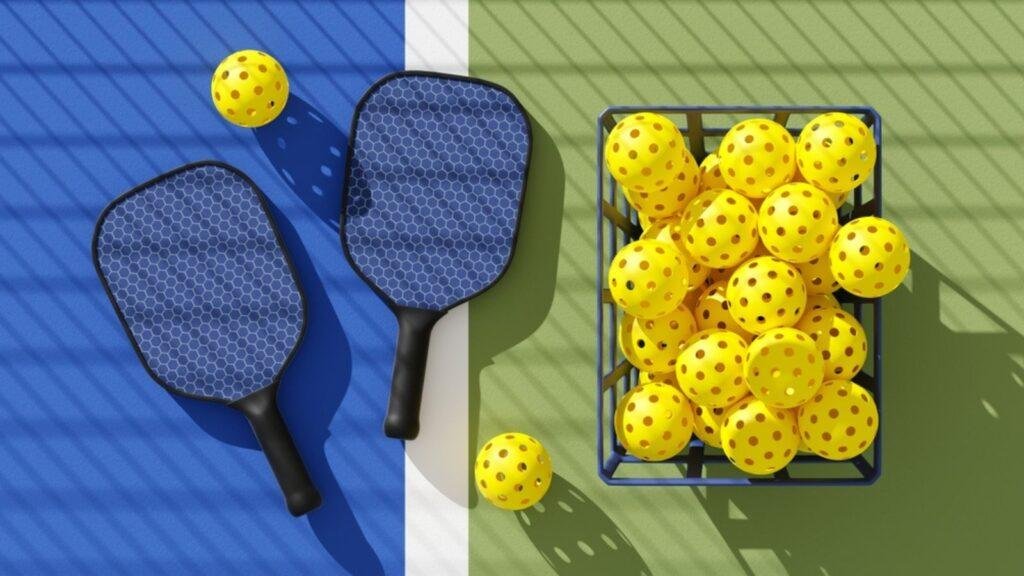Blog
why is pickleball called pickleball

Why is Pickleball Called Pickleball? Unraveling the Curious Origins of a Popular Sport
In the world of sports, few names spark as much intrigue as “pickleball.” At first glance, one might envision a quirky game steeped in culinary delight, perhaps served with a side of tangy pickles. However, the term transcends mere curiosity; it opens the door to a fascinating backstory woven into the fabric of American leisure culture. This article delves into the origins of the name “pickleball,” exploring the playful anecdotes and historical nuances that transformed a backyard pastime into a competitive phenomenon. Join us as we uncover the delightful journey behind this iconic name and discover what lies beneath the surface of this rapidly growing sport. Whether you’re a seasoned player or a curious newcomer, the story of how pickleball got its name is sure to pique your interest.
Origins of the Name and Its Evolution
The enchanting journey of the name “pickleball” is peppered with intriguing anecdotes and playful myths. The sport, created in 1965 by three fathers—Joel Pritchard, Bill Bell, and Barney McCallum—began as a family pastime on Bainbridge Island, Washington. While there are numerous tales surrounding the etymology of its name, the most common narrative suggests it was inspired by the Pritchard family’s dog, Pickles, who would chase after the stray balls during the game. This whimsical association captivated the players and left an impression that would stick, much like the sport itself. Another theory posits that the name reflects the sport’s combination of elements from various racquet sports, creating a “pickle” of different games.
As the game spread, the origin of its quirky name sparked curiosity and debate. In the early years, the term gained traction, and its delightful sound became synonymous with fun and accessibility. In fact, despite the differing explanations for the name, the evolution of pickleball has retained the community spirit it was founded on. To explore its cultural significance, consider the following aspects:
- Creative Logos: The playful nature of the name has inspired creative logos and branding.
- Merchandising: Pickleball-related products often embrace the quirky name in their marketing.
- Community Events: Local tournaments often feature themed events that play on the name “pickleball.”
The evolution and versatility of the name reflect the inclusive nature of the sport, appealing to players of all ages and backgrounds. Regardless of its origins, the name “pickleball” has become a delightful testament to a game that continues to grow and thrive worldwide.

The Role of Pickles in the Games Inspiration
The quirky name “pickleball” has its origins wrapped up in the lighthearted and playful spirit of the game itself. One of the stories suggests that it was named after a family dog, Pickles, who had a penchant for chasing the ball during the game’s early days. This anecdote encapsulates the charm and fun that the sport embodies, reflecting how Pickles the dog became an informal mascot. Alternatively, some argue that the name came from the term “pickle boat,” referring to a crew that was made up of players from various teams—a fitting tribute to the collaborative and inclusive nature of the game.
Beyond its whimsical roots, the notion of pickles plays a deeper role in shaping the culture of pickleball. Much like how a good pickle adds zest to a meal, the game infuses a sense of joy and camaraderie into its players’ lives. It’s common to see enthusiasts gather not just for the competition but also to socialize over snacks that often feature pickles, highlighting a unique blend of sport and culinary enjoyment. This cultural quirk has led to themed tournaments and events where pickles take center stage, showcasing how the beloved snack can symbolize community and shared experiences among players.

Cultural Impact and Popularity of Pickleball
The meteoric rise of pickleball in recent years has reshaped the sports landscape, making it one of the fastest-growing recreational activities in the United States. Its blend of tennis, badminton, and ping pong creates a unique and engaging experience that appeals to players of all ages. The versatility of pickleball, with its ease of learning and minimal equipment requirements, makes it accessible, allowing participants to quickly grasp the game. Many communities have embraced the sport, establishing dedicated courts, clubs, and organizing local tournaments, fostering not just a sense of competition but a vibrant social fabric where friendships are forged.
Furthermore, the cultural significance of pickleball extends beyond mere gameplay; it has become a symbol of community engagement and active living. Demographics show a diverse range of players, including younger generations and retirees, promoting inclusivity and providing opportunities for intergenerational bonding. The sport’s charming name, often a topic of curiosity, adds to its appeal and allure. Here’s a brief look at some factors contributing to its popularity:
- Social Interaction: Encourages friendly competition and camaraderie.
- Health Benefits: Great way to stay active and improve fitness.
- Community Spirit: Local leagues and clubs bring people together.
- Simplicity: Easy to learn for newcomers, providing instant fun.

Understanding the Mix of Fun and Seriousness in the Name
When it comes to the peculiar name of pickleball, the mix of fun and seriousness evokes a sense of curiosity and enjoyment. The origins of the sport date back to 1965, when it was created by three dads looking for a way to entertain their children during the summer. This playful endeavor led to the invention of a game that combined elements of badminton, tennis, and table tennis. The lighthearted atmosphere surrounding its creation is reflected in its whimsical name, which ultimately fosters an inviting and casual vibe. Not only does this name capture the spirit of the game, but it also encourages players of all ages to join in the fun.
The serious aspect of pickleball comes from its evolution into a competitive sport that has gained international recognition. Many players take the game seriously, training diligently and participating in tournaments that showcase their skills. This duality of entertainment and competition is what sets pickleball apart from more traditional sports. Here’s a quick look at some factors contributing to its popularity:
- Accessibility: Easy to learn, making it appealing for all ages.
- Community: Builds friendships and a sense of belonging.
- Health Benefits: Offers excellent physical exercise.
- Competitive Spirit: Provides opportunities for skilled play and tournaments.
Q&A
Q&A: Why Is Pickleball Called Pickleball?
Q1: What is pickleball?
A1: Pickleball is a hybrid sport that combines elements of tennis, badminton, and ping-pong. It is played on a court with a net, using paddles and a lightweight plastic ball with holes. The game can be played in singles or doubles format, making it accessible to players of all ages and skill levels.
Q2: So, why the unique name “pickleball”?
A2: The origins of the name “pickleball” are as intriguing as the sport itself! There are two main stories that contribute to the name’s legend, providing a whimsical mystery behind it.
Q3: What’s the first story behind the name?
A3: One popular account attributes the name to the sport’s co-founder, Joel Pritchard, and his family dog, Pickles. According to this story, the Pritchards were playing the game, and Pickles, a spirited dog, would chase after the ball and run off with it, leading to the playful association of dogs and the game they enjoyed. Hence, the name “pickleball” was born.
Q4: Is there another explanation for the name?
A4: Yes! The second story involves the original intent behind the game. The creators, Joel Pritchard, Bill Bell, and Barney McCallum, reportedly named it after “pickles,” which is a term used in rowing to describe the mixed crew of rowers, signifying a combination of different sports in one game. This interpretation paints pickleball as a sport that cleverly brings together diverse elements.
Q5: Are any of these explanations officially confirmed?
A5: While the story of the Pritchard dog has become widely accepted as the origin of the name, there is no definitive proof to confirm either explanation. The playful nature of the sport and its unparalleled charm likely played into the whimsical naming as well. Ultimately, the true origin may forever remain a delightful enigma, further enhancing the culture surrounding pickleball.
Q6: Why does the name matter?
A6: The name “pickleball” captures the essence of the sport—fun, lightheartedness, and community. It reflects how pickleball encourages social interaction and enjoyment among players and spectators alike. Plus, its catchy name has certainly helped it gain popularity, making it a memorable and inviting choice for new players.
Q7: So what’s the takeaway?
A7: Whether you prefer to see pickleball as a nod to a fun-loving dog or an inclusive spirit of mixed sports, the name holds a special charm that mirrors the joy and camaraderie the sport brings. Next time you step onto the court, remember the delightful stories—and perhaps give a nod to Pickles, too!
To Wrap It Up
the etymology of the term ”pickleball” is as layered and intriguing as the game itself. Whether stemming from a beloved dog named Pickles, or inspired by the sport’s unique combination of elements akin to a “pickle boat,” the origins of the name reflect the playful spirit of this rapidly growing sport. As pickleball courts pop up in communities across the globe, the name serves not just as a label, but as a reminder of the game’s roots—bringing together players of all ages and backgrounds in a fun and inclusive environment. So, the next time you hear someone mention pickleball, you’ll know there’s a delightful story behind the name, echoing the joy and camaraderie that the game inspires. Happy playing!












